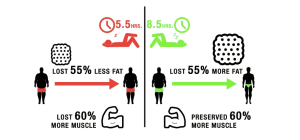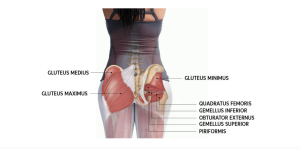.
Overtraining Syndrome occurs when an individual increases their exercise volume and/or intensity while not allowing for enough recovery time and rest. The performance may be reduced and plateau as the body is pushed physically further than it can handle. An imbalance between the workouts and recovery is created resulting in stress and physical trauma to the body.
Causes of Overtraining Syndrome
Overtraining is often seen in athletes who are training for a competition, a special event, or who are very active but it’s actually more common than you may think. Anyone following a regular and consistent exercise routine can overtrain. Normally a person will increase their training intensity and frequency simultaneously without including enough recovery time and adequate rest. Thinking that training longer and harder will improve their performance. In actual fact this may cause a decrease in performance, leading to both physical and mental signs and symptoms of overtraining syndrome.
It is during the rest period after training that your body builds greater strength and repairs the muscle fibres. It restores glycogen for your muscles and restores hormone levels. Once recovered, the body can perform at a higher level. However, when the body cannot repair the damage due to inadequate recovery time, regeneration cannot occur, and performance plateaus and/or declines.
Many signs and symptoms are directly related to overtraining and the effects can be hormonal, emotional, nutritional, neurological, and muscular imbalances, however, this list is not exhaustive. Any of these imbalances in the body can cause other problems such as fatigue, depression, injuries, suppressed appetite and lowered performance.
There are different stages of overtraining. Usually, it begins with subtle warning signs and symptoms, and if these go unnoticed or ignored, it can progress to a more serious end-stage of overtraining.
Common warning signs and symptoms:
- Fatigue, feeling drained or washed out
- General unexplained aches and pains
- Muscle and joint pain that lingers
- A sudden drop in performance levels
- Insomnia
- Headaches
- Compromised immunity
- Moodiness
- Depression
- Lack of motivation for the sport
- Decreased appetite
- Increase in injuries
Treatment for overtraining syndrome is rest. Depending on the length of time that the overtraining syndrome has occurred, the amount of rest you require will differ. If caught in the early stages, a few days to one week of no training is sufficient. However, if the case is more severe the individual may need to avoid their training for a number of weeks. Sometimes it may take months for a full recovery. It’s also important to keep yourself hydrated and drink plenty of fluids and alter your diet if necessary.
Chiro & Sports Med
Our chiropractors at Chiro & Sports Med are committed to providing chiropractic solutions to address your unique needs, whether you are experiencing an irritated nerve, bulging disc, back pain, neck pain, knee pain, headaches, or even muscular tightness and tension. You may be searching for pain relief after an accident or experiencing an injury. Our mission is to help reduce or eliminate pain and to prevent future problems and injury. Above all, we are here to improve your quality of life, well-being, and your ability to live an active healthy lifestyle.
If you would like to make an appointment with one of the chiropractors at Chiro & Sports Med simply call our office on 9817 2005 and one of our friendly staff will organise an appointment for you.





